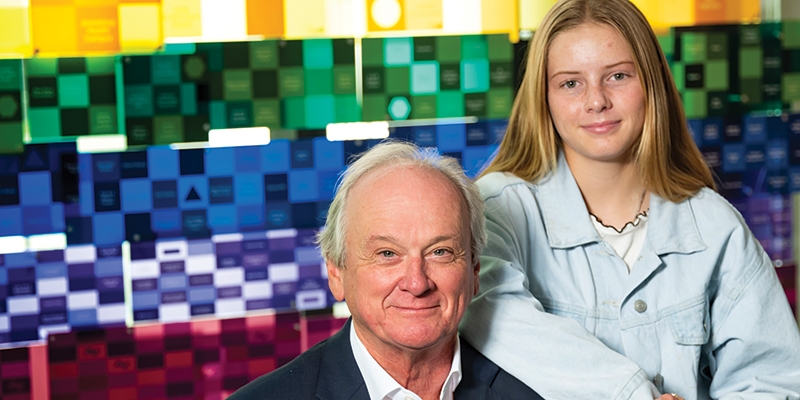Search
Research
The effect of oral insulin on subcutaneous insulin requirements and glycaemia in T1DMLiz Tim Davis Jones MBBS FRACP PhD MBBS DCH FRACP MD Co-director of Children’s Diabetes Centre Co-head, Diabetes and Obesity Research Co-director of
Research
Wellbeing and Type 1 DiabetesA community-led, trauma-informed psychosocial intervention to improve health outcomes of children and young people with Type-1 diabetes.


News & Events
Smooth sailing for Drina thanks to burden-breaking technologyRecent diabetes technology is helping 12-year-old Drina keep on top of her condition and be independent, while significantly easing the disease burden on her family.

News & Events
'Artificial pancreas' helps ease diabetes burdenThe Centre is currently involved in an international effort to develop revolutionary closed- loop 'artificial pancreas' technology. It is also leading a multi-centre Australian trial of these portable devices at home in young people with diabetes.

News & Events
What life is like living with type 1 diabetesEvery decision a child with type 1 diabetes makes can impact on their blood glucose levels.
Research
Use of remote monitoring with continuous glucose monitoring in young children with Type 1 diabetes: the parents’ perspectiveParents of primary school children reported that using remote monitoring and continuous glucose monitoring was a mostly beneficial experience
Research
Diabetic Ketoacidosis at Onset of Type 1 Diabetes and Long-term HbA1c in 7,961 Children and Young Adults in the Australasian Diabetes Data NetworkThe relationship between diabetic ketoacidosis (DKA) at diagnosis of type 1 diabetes and long-term glycemic control varies between studies. We aimed, firstly, to characterize the association of DKA and its severity with long-term HbA1c in a large contemporary cohort, and secondly, to identify other independent determinants of long-term HbA1c.
Research
Trending now: modelling global epidemiology of type 1 diabetes in children and adolescentsType 1 diabetes, one of the common chronic conditions in children and adolescents, is a serious lifelong condition requiring daily treatment with exogenous insulin for survival. Descriptive epidemiology is important for planning of adequate diabetes health-care provision and could provide clues to aetiology. Over the past few decades, standardised diabetes incidence registries have provided a wealth of data from selected countries.
Research
Diabetes Stigma Predicts Higher HbA1c Levels in Australian Adolescents With Type 1 DiabetesAdolescents with Type 1 diabetes (T1D) often need to undertake self-management tasks in public or disclose their diagnosis to others. Therefore, they may be subjected to negative reactions from the public, known as enacted stigma.
